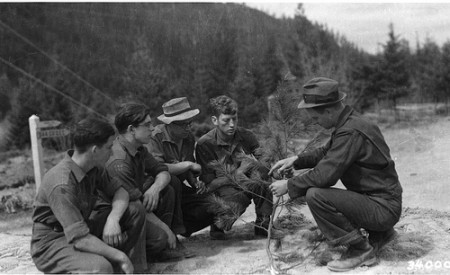In brief
Many (though not all) THATCamps offer introductory workshops in various digital skills. Anyone who goes to the THATCamp can also attend its workshops, which, like the other sessions, are free.
Past and upcoming workshops
THATCamp organizers decide what workshops to offer, and workshop instructors are usually volunteers drawn from among THATCamp participants or organizers. Here’s what THATCamps are offering in the way of workshops (be sure to check the THATCamp’s own website for the most up-to-date information — note, too, that workshop series were formerly referred to as “BootCamps,” a term we have now deprecated):
THATCamp Virginia workshops
General Track
- Web Building Blocks (Joe Gilbert)
- Programming with Ruby (Wayne Graham)
- Statistical Analysis with R (Kathy Gerber)
- Qualitative Analysis with N’Vivo (Nancy Kechner)
- Intro to CMSes: WordPress, Drupal, Omeka (Rafael Alvarado and Patrick Murray-John)
GIS Track
- Making Your First Map (Chris Gist & Kelly Johnston)
- Virtual Globes (Chris Gist & Kelly Johnston)
- Working with Historic Maps (Chris Gist & Kelly Johnston)
- Introduction to Web Mapping (Joe Gilbert)
- GIS Playtime (Chris Gist & Kelly Johnston)
THATCamp Chicago workshops
- Programming with Processing
- Omeka As a Digital Archive for Researchers and Librarians
- Design Tools for the Digital Humanities
- Geographical Information Systems
THATCamp New Mexico workshops
- Using Prezi for Presentations and Education
- Introduction to the Expression Engine Content management system
- “Road Map” for creating meaningful multimedia
- Using Omeka
THATCamp Canberra workshops
- Data Visualisation (Mitchell Whitelaw)
- APIs and Mashups (Paul Hagon)
- Digital Mapping (Ian Johnson)
- Text Encoding (Conal Tuohy)
THATCamp Curriculum
THATCamp workshops may be offered in one or more of the following eight areas. All workshops will be introductory and hands-on and will emphasize first principles, background, and context. Workshop examples are given below; other pertinent workshops that fit the curriculum may be offered.
- Understanding the history of technology and the humanities
- Brief history of computing
- Brief history of Digital Humanities
- Understanding ongoing legal and social issues related to technology and the humanities
- Copyright issues in the humanities
- Economic issues in scholarly communication
- The Google Book Search settlement
- Finding and managing humanities information
- Google Scholar / databases
- Google Book Search
- Zotero / Mendeley / CiteULike
- Digitizing, editing, organizing, publishing, and preserving humanities materials
- Text / image / audio / video digitization
- XML
- XSLT
- TEI
- EAD
- Omeka
- Metadata standards
- Indexing
- Linked data
- Databases and data structures
- Collecting, interpreting, analyzing, and manipulating humanities data
- Text mining tools
- Visualization tools
- Web analytics
- Yahoo! Pipes
- Open Layers
- ARCGIS
- Creating, presenting, and publishing humanities study
- HTML
- CSS
- Graphic design
- Information architecture
- Typography
- Usability testing
- CommentPress / digress.it
- WordPress
- PowerPoint / Keynote / Prezi
- Video creation
- Audio / podcast creation
- Working collaboratively, both formally and informally
- Project management
- Project budgeting
- Getting project funding
- Wikis
- Google Docs
- Social media
- Using programming languages and tools
- JavaScript
- PHP
- MySQL
- UNIX
- Perl
- Regular expressions
- Google Inventor for Android



